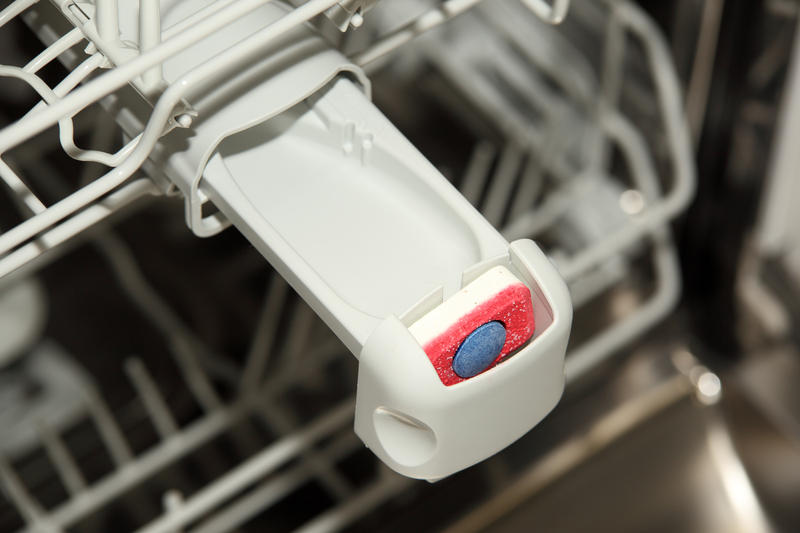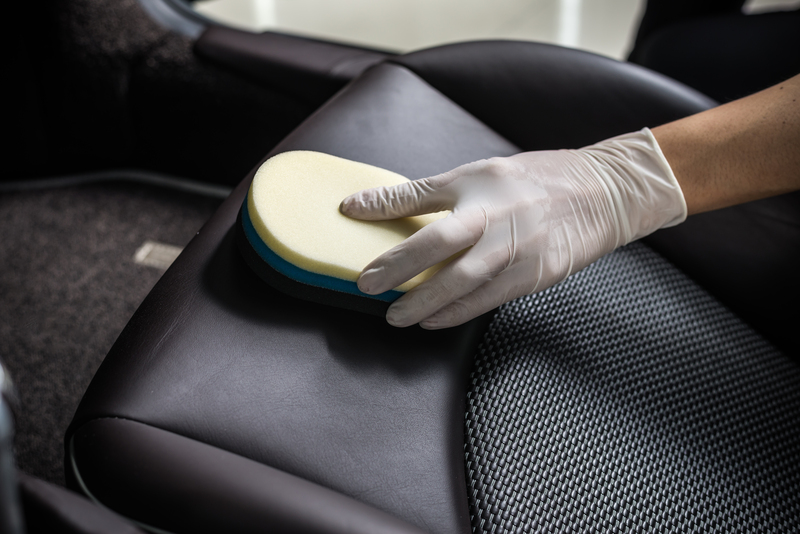A spotless home doesn't require harsh chemicals or endless hours of cleaning. In fact, making small, eco-friendly changes to your cleaning routine can help maintain a clean living space while also safeguarding the environment. This comprehensive guide explores various eco-friendly tips and tricks that anyone can implement to achieve a spotless and sustainable home.
Understanding Eco-Friendly Cleaning
Eco-friendly cleaning involves using products and practices that are not harmful to the environment. Traditional cleaning products often contain chemicals that may be toxic, not only to us but also to wildlife and the broader ecosystem. By using natural ingredients and adopting sustainable habits, you can minimize your ecological footprint while keeping your home spotless.

DIY Natural Cleaning Products
Commercial cleaning products can be replaced with homemade alternatives using simple, natural ingredients. Here are some easy recipes for the most common cleaning tasks:
All-Purpose Cleaner
Combine equal parts of water and white vinegar in a spray bottle, and you've got yourself an effective all-purpose cleaner. For a pleasant scent, add a few drops of essential oils like lavender, lemon, or eucalyptus.
Glass and Mirror Cleaner
Mix one part water with one part rubbing alcohol and add a splash of white vinegar for sparkling windows and mirrors. Use a microfiber cloth to avoid streaks and reduce waste.
Natural Scrubbing Paste
For tough stains and grime, combine baking soda with enough water to form a paste. Apply it to the problem areas and scrub with a brush. This mixture works well on sinks, bathtubs, and countertops.
Adopting Sustainable Cleaning Habits
Changing your approach to cleaning can have a significant impact on the environment. Here are some sustainable habits to consider:
Use Less Water
Be mindful of your water usage when cleaning. Use a bucket instead of a running tap to conserve water and rinse sponges and cloths only when necessary.
Opt for Reusable Cloths
Microfiber cloths, which can be washed and reused many times, are more sustainable than disposable paper towels. They are also more effective at picking up dirt and dust.
Recycle and Repurpose
Old T-shirts and towels can be cut into cleaning rags instead of buying new ones. Similarly, repurpose glass jars and containers for storing homemade cleaning products.
Eco-Friendly Floor Cleaning
Keeping your floors clean without harming the environment is easier than you think. Here are a few tips for eco-friendly floor cleaning:
Hardwood Floors
A simple solution of 1/4 cup white vinegar dissolved in a gallon of warm water works well for hardwood floors. Use a damp mop--never soaking wet--to clean the surface and then dry it with a cloth to prevent damage.
Carpets
Sprinkle baking soda on carpets and let it sit for a few minutes before vacuuming to eliminate odors. For stains, mix equal parts white vinegar and water in a spray bottle, apply to the stain, and blot with a clean cloth.
The Benefits of Green Cleaning
Adopting an eco-friendly cleaning regimen has numerous advantages for both your household and the environment:
Healthier Home Environment
Natural cleaning products reduce exposure to potentially harmful chemicals. This is especially beneficial for households with children, pets, or individuals with allergies or sensitivities.
Environmental Protection
Eco-friendly cleaning products often come in recyclable packaging and are biodegradable, reducing pollution and waste that harm the environment.
Cost-Effective
Homemade cleaning products using basic ingredients like vinegar, baking soda, and essential oils are not only effective but also cheaper than commercial alternatives.
Eco-Friendly Laundry Tips
Laundry day doesn't have to be hard on the planet. Incorporate these eco-friendly tips into your routine:
Use Natural Detergents
Opt for natural or biodegradable laundry detergents free from phosphates, artificial fragrances, and dyes. These are gentler on both your clothes and the environment.
Wash with Cold Water
Heating water accounts for a significant amount of the energy used in washing clothes. Switching to cold water can save energy and still get your clothes clean.
Air Dry
Whenever possible, skip the dryer and hang your clothes to air dry. This saves energy and extends the life of your garments.
Mindful Dishwashing
Dishwashing can also be made more eco-friendly with a few simple adjustments:
Use Eco-Friendly Dish Soap
Choose a biodegradable dish soap free of harmful chemicals to reduce water pollution.
Load the Dishwasher Efficiently
Only run the dishwasher when it's full to conserve water and energy. If you wash dishes by hand, fill one basin with soapy water and another with rinse water to avoid continuous running of the tap.

Green Cleaning Tools
Equipping your home with sustainable cleaning tools can further minimize your environmental impact:
Bamboo Brushes
Bamboo is a renewable resource that grows quickly and requires less water than traditional wood. Bamboo brushes are durable and biodegradable, making them a perfect choice for eco-friendly cleaning.
Natural Sponges
Opt for natural sponges over synthetic ones. They break down more easily and don't release microplastics into the environment.
Reusable Mop Pads
Reusable mop pads can be washed and reused multiple times, reducing waste compared to disposable options.
Conclusion
Maintaining a spotless home doesn't mean you have to compromise on environmental values. By incorporating eco-friendly cleaning products and sustainable habits into your routine, you can keep your living space clean and green. The benefits extend beyond your home, contributing to a healthier planet and a more sustainable future.
Remember, every small change counts. Whether it's using natural cleaners, conserving water, or choosing sustainable cleaning tools, your efforts make a difference. Start your journey towards an eco-friendly spotless home today, and enjoy the health, environmental, and economic benefits that come with it.



